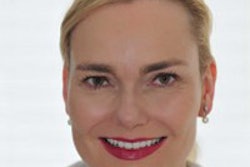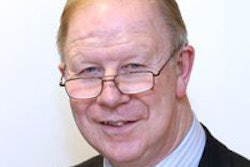
LONDON - You've read an advert for your dream job, but more than 100 other doctors have seen it too. How can you stand out from the crowd and land the post? Practical advice was given during a workshop on Monday at the European Society of Cardiology (ESC) annual meeting.
 You will determine your own future, Dr. Martin Cowie said.
You will determine your own future, Dr. Martin Cowie said.The first step is to think deeply about what interests you, what you want to do in life, where you want to end up, and you need to put as much time and attention into selling yourself as you do in project management, recommended Dr. Martin Cowie, professor of cardiology at Imperial College London and honorary consultant cardiologist at the Royal Brompton and Harefield National Health Service (NHS) Foundation Trust. Don't just turn up at an interview, looking good and feeling great, and expect to be appointed because life doesn't work like that, he said.
"When you are selling yourself on a CV [curriculum vitae] or at an interview, you have to be more American than European," he commented. "Europeans usually underplay, Americans sometimes overplay."
Remember the selection panel wants you to do well because it's so embarrassing if someone does very badly, according to Cowie, who chairs the education committee of the Heart Failure Association of the ESC. "If you come in, you don't look at any of the panel, you stumble to the seat, you have no eye contact, then they've already formed an opinion about you before you've even said anything."
These were his other main tips:
Preparation is vital. Study the organization's website, annual report, mission statement, etc. Get the names of the panel members and find out their interests, activities, and publications.
Go to the theater and study how actors perform. As soon as they enter the stage, they play a role. When you enter the interview room be smart and confident, but not arrogant, and remember to smile at each member of the panel.
Listen very carefully to what people say to you. Most candidates are so nervous they even forget to listen to the question. Try to relax and don't use defensive body language. Avoid crossing your arms and don't look like a rabbit in the headlights.
Put together a 30 or 40 second sketch or soundbite about yourself. The first question is often very general, e.g., tell us about yourself and your career. This seems so easy and straightforward, but it's actually a trick because it's so open-ended. You must focus on the key points of your CV.
Be succinct and crisp. Avoid going over every part of your CV, but don't give one-sentence answers; the panel will hate that because it doesn't allow time to think of another question. Make sure you look at the panel member who has asked the question and don't look up and down the row.
Think about who the panel members are. Remember the head of the panel may not be a clinician, and may even be a businessperson. They will assume that your clinical skills are good, and what they really want to know about is your personality. Do you have vision? Do you understand the organization you want to work for? What can you bring to them?
Try to engage and interest people. Some of the panel members may be bored and probably won't listen to much of what you have to say, so you must grip them. If you get the same question twice, don't reply that you've just answered the question. That would be disastrous. Just say something like: "Further to my earlier answer, let me amplify and give you more information."
Put yourself in the panel's shoes. What questions would you ask candidates? Then rehearse your answers, but don't sound too much like a robot.
Be careful when you talk about "other interests." It's amazing how many young doctors play six musical instruments and speak 10 languages fluently! Don't claim to speak Russian when you only know a few words. You'll be found out if you lie or exaggerate, so stick to the facts: only include your real interests on your CV.
Develop your softer skills, not just your clinical talents. Go to a management course, do some media training, and learn how to communicate better. This will pay dividends when it comes to an interview. Also, speak to your colleagues about their experiences, and ask them to do a mock interview. Record it with your iPhone.
Ensure you have the right qualifications. Most panels have a scoring system, and you will have to think about this system. Where did you train? What have you published? Have you done a fellowship, moved hospitals, worked overseas, won a prize, or secured any research grants? Make it easy for the panel to extract the relevant information from your CV. Including a photo on your CV is a waste of time because the assessor probably won't care what you look like. Use white paper, a large font, and nothing too jazzy. Look neat and organized, but not too artistic.
Distinguish yourself from others. When Cowie advertises a job, he usually has more than 100 CVs to review and only an hour to go through them all. Every candidate is well qualified, but what is special about you?
Above all, remember your destiny is in your own hands, he emphasized.
"You will determine your own future -- it's not something you're passively moving towards," he said. "But you need to know what you're aiming for. If you have no idea, how can anybody help you?"



















